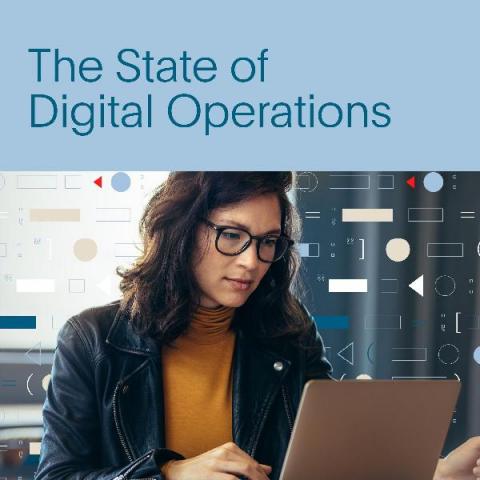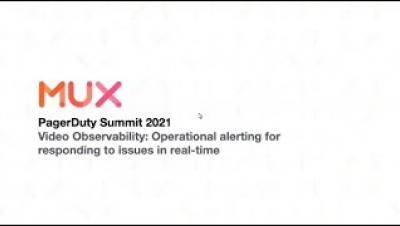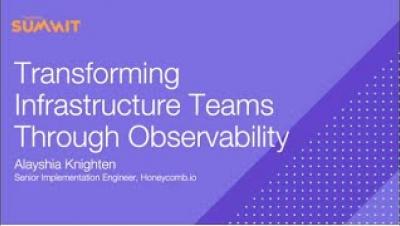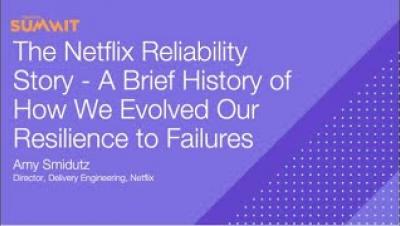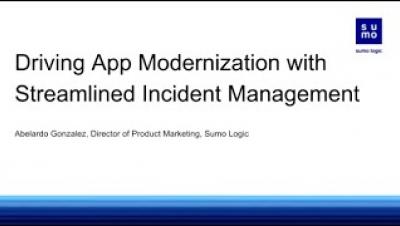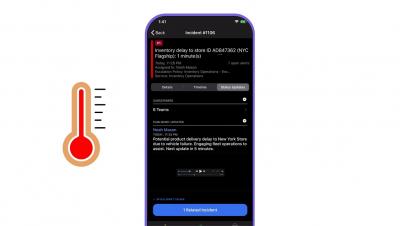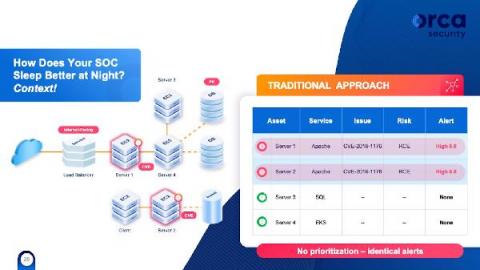Operations | Monitoring | ITSM | DevOps | Cloud
July 2021
Hear From Product Incident Response Lightning Talk
Three Key Takeaways from The State of Digital Operations Report 2021
2020 heralded a year of increased complexity and customer demands, which isn’t going away. In this new normal, organizations will still be tasked with keeping up this break-neck pace. So, what did digital operations look like in 2020 compared to 2019?
What's New: Introducing Next-Gen ChatOps With PagerDuty and Slack
In this new world of digital everything, new application versions usually mean that you’re going to get bigger and better features, more capabilities, and an uplifted user experience, right? When I talk to customers, many can’t wait to upgrade the PagerDuty integrations that they depend on to test new features. If you’re a PagerDuty for Slack user, the next-generation version of our Slack integration will certainly be an exciting development.
Experiencing Turbulence? Hypercare Helps Travel and Hospitality Firms Manage Sky-High Demand
Many sectors suffered during the COVID-19 pandemic, but the travel and hospitality industry was struck particularly hard as the world went into lockdown and governments urged us to stay home. According to the International Air Transport Association, global air passenger demand in 2020 was down a record 65.9% from the previous year, and the tourism industry saw an estimated loss of 100.8 million jobs worldwide.
PD Summit21: MUX: Video Observability: Operational Alerting for Responding to Issues In Real-time
What's New: Updates to Event Intelligence, Integrations, and More!
If you thought that the product announcements from PagerDuty’s largest event of the year, PagerDuty Summit 2021, was all we had in store for you, think again! We’re excited to announce that the July Release comes with a new set of updates and enhancements to the PagerDuty platform! You can learn about our latest capabilities via the Q1 PagerDuty Pulse or read below for the highlights.
PD Summit21: Transforming Infrastructure Teams Through Observability
PD Summit21: The Netflix Reliability Story: A Brief History of How We Evolved Resilience to Failure
PD Summit21: Adopting and Maturing to Service Ownership with PagerDuty and Rundeck
PD Summit21: Migrating to L1 Support to PagerDuty
PD Summit21: AWS and PagerDuty: Better Together -- A Digital Transformation Journey
PD Summit21: ScoutAPM: DevOps: Philosophy vs. Practice
PD Summit21: Sentry: Alert with Precision and Context Using Sentry + PagerDuty
PD Summit21: Sumo Logic: Streamline Incident Management to Drive Application Modernization
PD Summit21: Responding to Chaos with Gremlin and PagerDuty
PD Summit21: Strengthen Stakeholder Communications with PagerDuty Business Response
Evolving in CloudOps Maturity? Investing in People and Teams Pays Off
CloudOps is on the up. This is in part due to the rapid acceleration of the shift to cloud that was caused by the pandemic. The shift allowed companies to innovate faster, enjoy greater flexibility and scalability, and become more cost efficient. Many organizations who rapidly adopted cloud or increased their usage now realize that they need to better manage their cloud investments in order to fully embrace these benefits.
PagerDuty Summit Keynote Demo: A Day in the Life Of
HUG Relies on PagerDuty When Healthcare Incidents Arise
What's New With Runbook Automation: Rundeck 3.4.1
Technical teams are under more pressure than ever to move faster, protect revenue and availability, and push mean time to resolve (MTTR) ever lower. However, teams frequently find themselves encumbered by complex, repetitive, and manual tasks, rather than innovating. When urgent incidents arise, organizations often have to wait for specific developers or subject matter experts (SMEs) to deploy a fix.
PagerDuty Customer Mashup Video
Enabling Faster Incident Response and Mitigating Security Risks in Financial Services
Software is eating the world. Digital Transformation is top of mind for companies looking to meet ever-growing consumer demands and digitize manual processes. This isn’t unique to the technology industry. Ecommerce, finance, healthcare, and other industries are all moving in this direction.
PagerDuty Summit 2021: Jennifer Tejada Opening Keynote
Invisible Security at the Speed of Cloud
Security teams have the tough job of monitoring and securing every single workload in each cloud and for workloads in the development pipeline. Inevitably, these processes wind up being a bottleneck from the developer’s perspective, and developers get frustrated. Understandably, developers feel like security is simply making their jobs harder. But, on the other hand, security teams feel like they’re powerless to provide full coverage.




